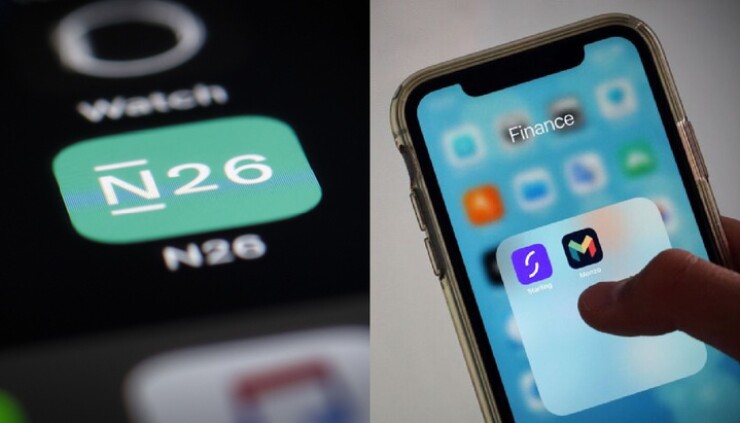European digital financial services upstarts like N26 and Monzo were able to attract investors to fuel a U.S. expansion, but recently scaled back their plans and refocused on their home markets after encountering a crowded American market.
Both companies faced steep competition in the U.S. and a difficult path to obtain licensing, factors analysts say will confront other non-U.S. challenger banks that try to establish a foothold here or scale existing American operations.
"The U.S. is a market that already has a burgeoning community of neobanks and fintechs offering specific and tailored services to their customers," said Zil Bareisis, head of Celent's retail banking practice in London.

Though it raised
N26 also laid off 10% of its New York office in May 2020, citing impacts from the pandemic, and U.S. CEO
N26, which was founded in 2013, launched in the U.S. in August in 2019 with a mix of mobile account opening and a virtual card that supports Apple Pay and Google Pay. It offers ATM availability via Allpoint and early wage access for direct deposit consumers. N26 does not have a U.S. banking license and has used Axos Bank, a $14 billion asset-bank based in San Diego, as its U.S. partner. N26 signed
Monzo's decision to not seek a U.S. banking license came amid a mix of fast growth and steep economic losses. Despite boosting its revenue between June 2020 and 2021 from $27 million to $91 million, Monzo reported an after-tax loss of about $150 million, after reporting a $64 million loss the prior year. Monzo did not return a request for comment.
"As they get larger, challenger banks are starting to face the same challenges as traditional banks, such as regulatory scrutiny and market saturation," said Dylan Lerner, a digital banking analyst at Javelin Strategy & Research, adding that challenger banks both in and outside of the U.S. will need to diversify through partnerships, licensing or buyouts. Oportun's recent acquisition of
At the time of its U.S. license withdrawal, Monzo said dropping its U.S. bank charter application would allow it to
"It’s not easy for any challenger to scale, and particularly given the pressure COVID-19 has placed on challenger banks to reassess their path to break-even, rather than relying on investor funds to support customer growth and product development," said Kieran Hines, a senior analyst in Celent's banking practice in London. "[There are] challenges that arise when startups look to stretch themselves with entry into such a large and competitive market."
Other European challenger banks that are pursuing the U.S. include London-based Revolut, which is applying for a
In the case of Monzo and N26, while both have done well to date in Europe and hoped to expand in the U.S., each has come under pressure to refocus on their core operations, according to Hines.
European challenger banks like Monzo and N26 compete in the U.S. with traditional banks as well as U.S. neobanks such as New York-based MoneyLion, which has more than 7 million users and is developing a
While U.S. challenger banks work with licensed bank partners, many European challenger banks have licenses in Europe. Monzo and N26, for example, both have U.K. banking licenses.
"Many European challenger banks have found that getting a U.S. license is a long and difficult process," Bareisis said.





